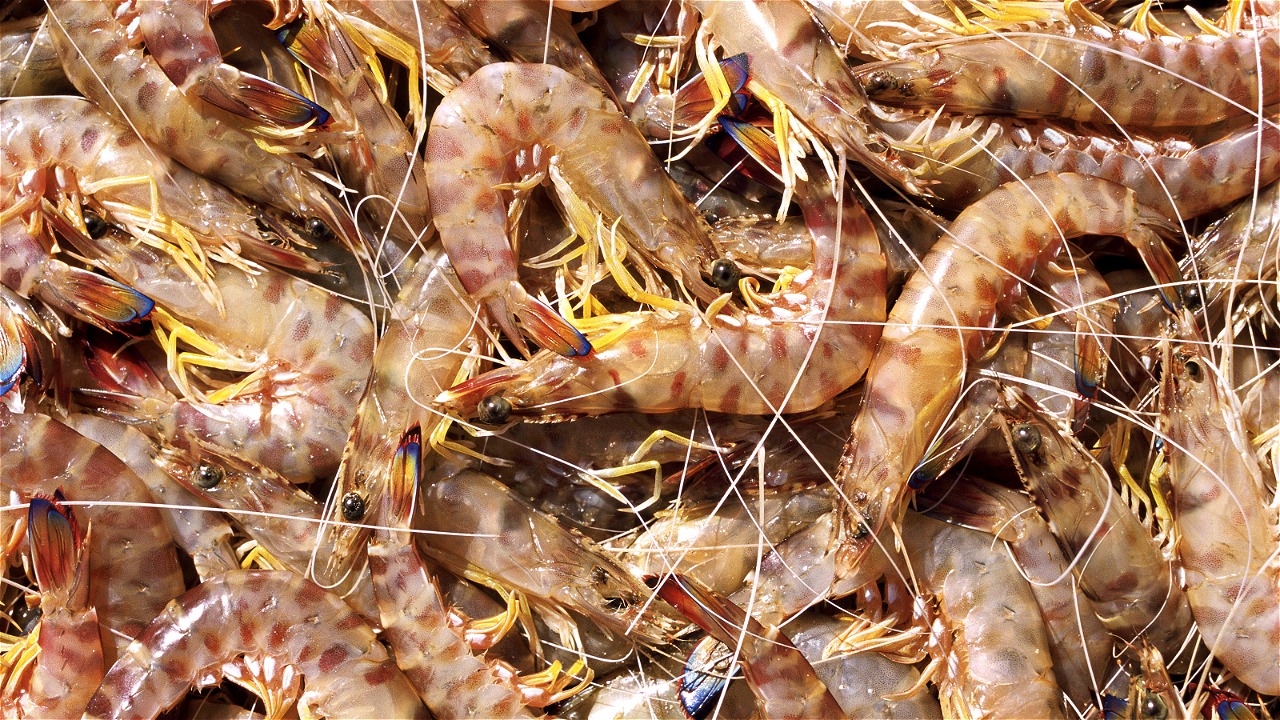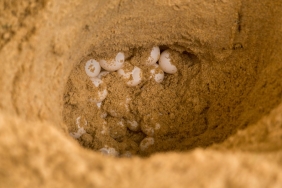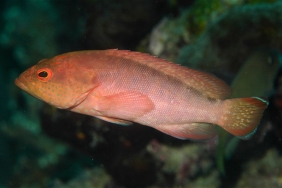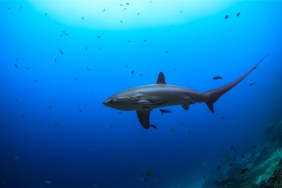ACADEMICS AND FISHERIES NGOS LEARN TO BECOME SHRIMP ASC ECOLABEL CERTIFICATION ASSESSORS
By: Usmawati Anggita Sakti (Seafood Savers Communication Assistant)
How is the role of academics and NGOs in the process of improving aquaculture towards ecolabel certification of shrimp commodities? This was answered during the Aquaculture Stewardship Council (ASC)¹ Fisheries Ecolabel Certification Training at Tarakan Plaza Hotel, Tarakan City, North Kalimantan Province, on November 27 - December 1, 2017 by WWF-Indonesia.
"In the process towards ASC certification, the preparation of Biology-Ecological Impact Assessment (BEIA) and participatory-Social Impact Assessment (pSIA), academics and NGOs can act as assessors, auditors or implementor consultants. The role taken should be according to need or demand. The role of academics and NGOs is quite important in terms of reviewing the performance of aquaculture units against various ASC standards that are generally based on metric measurements," said Cut Desyana, National Aquaculture Coordinator WWF-Indonesia.
The above statement confirms that all stakeholders related and relevant in the shrimp production process have a role in obtaining ecolabel certification. In this case, farmers, companies, government, NGOs and even seafood consumers and academics should understand their role.
Therefore, Dr. Ir. Rustam. MP, Andi Kurniawan. S.Pi, M.Eng, D.Sc, Alfabetian H Condro Haditomo, S.Pi, M.Si and 13 other participants who are academics, NGO activists and professionals from the Food, Agriculture and Fisheries Office of Tarakan City, fisheries companies, Diponegoro University Semarang, Borneo University Tarakan, Brawijaya University, Hasanuddin University, Airlangga University, Blue Forest NGO, KesemaT Foundation and Pilang NGO gathered and learned the principles of shrimp ASC certification provided by the WWF-Indonesia team. For five days, participants dissected the seven principles of ASC shrimp and their indicators, conducted an assessment and compiled a report on the results of the assessment of the fulfillment of ASC standards.
Deepening of ASC Principles and Field Visit
The presentation and open discussion by WWF-Indonesia focused on the seven ASC principles for shrimp, namely compliance with all applicable local and national standards and laws, siting of farms that do not harm the environment and conserve biodiversity and important natural habitats, farm operations that do not disturb surrounding communities, farm operations that use responsible labor practices, shrimp health management, fry selection and responsible use of resources.
In addition to the ASC shrimp standards, on the third day participants were provided with an understanding of the preparation of BEIA documents presented by Muhammad Ilman from People, Fish and Forest and pSIA by Cut Desyana, WWF-Indonesia. These two assessment documents are one of the requirements required in the ASC Shrimp standard to be carried out by a third or independent party. The training also dissected the understanding of social principles and gender equality in ASC certification practices delivered by Abdul Syukur Sialana from Oxfam.
As a culmination of the training to improve the capabilities of participants, on the fourth day participants practiced in the role of assessors. Participants then conducted a field visit to Tias Village and ponds in Bulungan, North Kalimantan owned by Rusli/H. Nurdin, H. Darsah/H. Anca and Abd. Wahid. The participants were divided into four groups with the aim that each participant can conduct an assessment in accordance with ASC standards on the farms that will supply PT Mustika Minanusa Aurora (PT MMA).
"The results of the assessment participants are presented and various recommendations for improvement will become a reference for several farms that will supply PT MMA and be registered for ASC certification," said M. Budi Santosa, Marine Conservation and Sustainable Fisheries Senior Officer. The reference is a plan of farming improvement measures to carry out improvement activities in order to obtain ASC, after the company obtained ASC certification last August for two of its supplier farms.
"Recommendations are activities that are expected to be carried out to address and reduce the impact or risk of aquaculture on the surrounding environment and community by involving negotiations with affected parties," he added.
This training opened the participants' horizons about the standardized assessment process in shrimp ASC certification for academics and NGOs. The farm visit was a valuable experience for participants because they could directly practice the theory obtained during the training. Furthermore, participants are expected to choose the appropriate role; assessor, auditor or consultant independently.
Note:
¹ Aquaculture Stewardship Council (ASC) is an ASC or Aquaculture Stewardship Council is an international non-profit organization that develops third-party certification schemes for sustainable capture and culture fisheries. ASC's mission is to realize sustainable and responsible aquaculture practices. For more information visit https://www.asc-aqua.org/
² PT Mustika Minanusa Aurora (PT MMA) is a fish and tiger shrimp processing company in North Kalimantan. PT MMA is a WWF-Indonesia partner company undergoing the Aquaculture Improvement Program (AIP) through the Seafood Savers membership scheme. The company has successfully obtained ASC (Aquaculture Stewardship Council) certification in August 2017.





